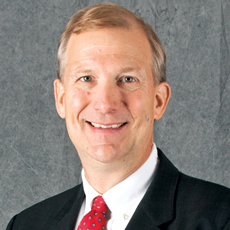
The coronavirus pandemic has exposed many uncomfortable truths about serving seniors.
The worst isn’t that long-term care providers are prioritized way behind hospitals in funding and all around perception.
It’s not that you can’t get enough personal protective equipment to avoid spreading a disease that is a killer either already in or likely to be in your midst soon.
It’s not even the fact that despite signing up to be a life-enriching care provider, you now find yourself risking your and your own family’s safety merely by showing up for work each day.
No, the most brutal truth is that ageism is so thoroughly soaked into the collective U.S. mind, it’s liable to counteract nearly all the good you do. Before this year, complaints about ageism almost laughably centered on how seniors should be addressed verbally, how not to be condescending to them and entertainment options. That was then.
Now, there’s an invisible killer on the loose and a good chunk of society is essentially shrugging its shoulders and saying, “I’ll be OK, or if I get sick, I’m young enough to recover, and besides, you can’t stop me from doing what I want to do.”
In other words, if some people have to die, oh well, it’s going to mostly be older people and … they’re next in line anyway, right? As one social media user put it, it might be time to cull the herd.
Crude, sure. But admit it: If Americans can’t fund and support their oldest, most frail residents when times are good, who do you think they’re going to toss overboard first when the going gets tougher and the resources tighter?
Worse than that, it’s an “OK, they’re just older people” line of thought that pervades many a subconscious. It’s an ugly thought process validated virtually every day, whether we like it or not. It happens on your street and virtually wherever people gather, online or otherwise.
The other day, I heard Jill Schumann, the president and CEO of LeadingAge Maryland, on a national conference call and she nailed it on the head about fighting ageism and the sacrificing of seniors.
“One of the things that’s really key is we need allies. We need to make sure it’s not only older people and those who serve older people singing this song,” she told providers on the line. “This needs to be an intergenerational effort. So I think recruiting allies of many ages is absolutely critical.”
She advised using reframed language, and narratives and metaphors that are non-ageist.
The battle must be waged because with every box of PPE or grant that doesn’t go toward a long-term care community … With every account of beaches or bars crowded with people not wearing masks or social distancing… With every instance of young people playing sports because they figure their odds of surviving any COVID-19 infection are so high, damn the asymptomatic pass-along dangers … it becomes more evident all the time.
America is suffering from raging ageism, and it’s going to cost many, many more lives until a collective mindset drastically changes.
“What we’re seeing is disinvestment in older people,” Schumann somberly noted, “and that’s not right.”
Follow Executive Editor James M. Berklan @JimBerklan.




